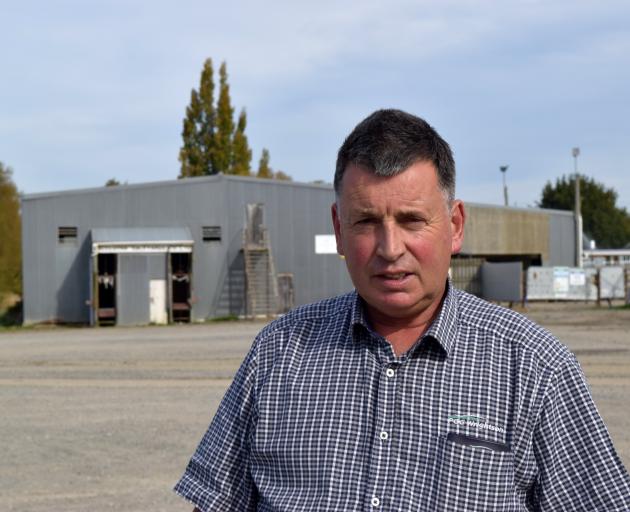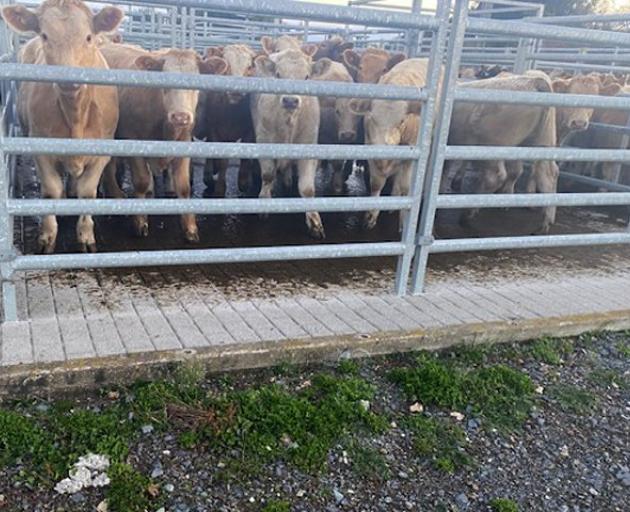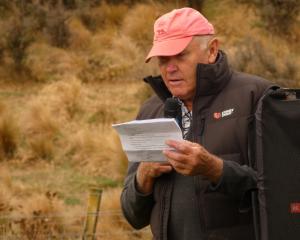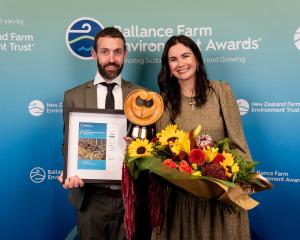
The annual sale has been held at Balclutha Saleyards since 2020.
The sheep and beef farmers usually sold their calves privately but their usual buyer did not require any this year, Mrs Lesley said. Consequently, they made their debut at the sale.
The saleyards are about 300m from the Martins’ 60ha property and the calves were trucked there.
"They travel well," Mrs Martin said, laughing.
A pen of their Charolais-cross steer calves, with an average weight of 335kg, won the R.B. Murray Trophy for the heaviest pen of steers.
They sold for $1180 per head, which won the couple a shield for the highest individual price for a pen of spring steers.

Those 22 heifers won them the third and final trophy on offer.
"We were very pleased with the results," Mrs Martin said.
Beresford farm in the Catlins was the runner-up at the competitions, selling 11 Angus and Simmental-cross steer calves with an average weight of 312kg for $1110 per head.
A pen of nine of Charolais-cross steer calves, weighing 300kg on average, supplied by R.J. Pepperell, of Hinahina, also sold for $1110 per head.
The runner-up in the heifer competition was a pen of 12 Murray Grey and Simmental-cross heifers from Beresford farm, which sold for $860 per head.
Mrs Martin said the couple retired from milking about 900 cows in Otanomomo in the Catlins nearly 20 years ago and converted a run-off to their existing farm.

Their breeding programme used a purebred bull and, for the first time, the cows were in calf to an Angus bull so time would tell if they had any chance of retaining the three trophies next year.
"Good stock will always sell," she said.
PGG Wrightson senior livestock representative Craig Dempster, of Balclutha, said there was a full clearance of the 1000 calves at the sale — "although it was hard work".
Top steers fetched up to $3.60 per kg and top heifers up to $3.10 per kg.
Dry conditions biting in parts of the South impacted demand and prices as there was plenty of supply.
However, prices were higher than at some other recent sales in the South, he said.
"It is a battle with any form of livestock at the moment. There is not a lot of buoyancy, whether it is lambs or calves or breeding ewes. The market is very subdued and to get a full clearance is probably a good result," he said.















